Experiencing the stress of poverty in Switzerland
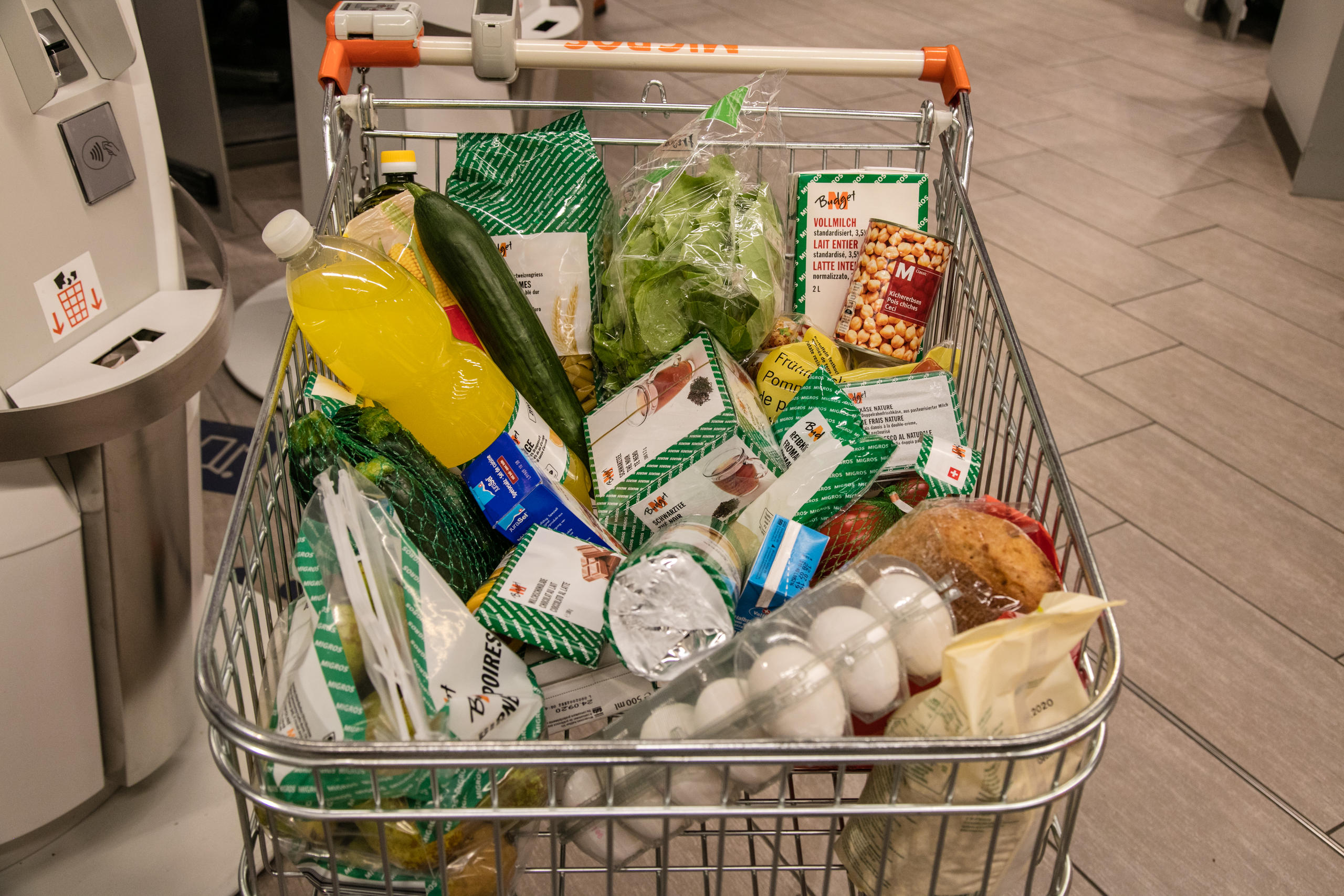
One in twelve people in Switzerland is now considered poor after a 20% increase in poverty over the last five years. I wanted to find out what it was like living on the Swiss minimum subsistence level for a month.
My first port of call was the social welfare office in Bern to learn about benefits, and how much I would have to lower my standard of living to receive any welfare payments.
I learned that my rent was just within the limits. “But you would have to probably cut spending on basic items such as food, clothes, personal hygiene, electricity, telephone and public transport,” explained Alexandra Herren at Bern’s social welfare service.
I then worked out how much money my family of three would receive in welfare and compared this to my current net income. The result was that my salary currently gave us CHF2,737 ($2,793) more per month than social welfare would. Considering that social welfare is not taxed, this amount would fall to CHF1,800. However, it would not take into account expenses covered by welfare, such as dentists, opticians, heating costs, childcare and the running costs for my car.
My next step was to call the budget advice office. There they explained that it would be almost impossible to cut costs for rent, taxes, health and other insurance schemes, as well as a fire brigade compensation fee (believe it or not, some communities charge you for not serving in the fire brigade). I could, however, save money on food, body care products, entertainment and household items.
In 2016, the subsistence minimum income in Switzerland was set at CHF2,247 ($2,355) per month for a single person and at CHF3,981 for two adults with two children.
People living on social benefits receive a basic allowance of CHF986 per month, depending on the canton. This must cover food, clothing, cleaning, personal hygiene, transport and communication. Rent, health insurance and health costs are covered separately.
If you have debts, you are left with a minimum subsistence allowance of 1200 francs per month, in addition to health insurance and rent.
By way of comparison, the gross median salary in Switzerland is around CHF6,500 per month.
Entertainment, leisure and education
My first step was to cancel my Netflix and online library accounts. I also canceled our holidays for this summer.
Luckily, it was very easy to find free online entertainment and education products. I read e-books, listened to audiobooks and music, watched movies and consumed podcasts, documentaries and educational programmes, all free of charge.
Fortunately, our village fair took place before my test month. How could I have explained to my young daughter that she couldn’t go on the Ferris wheel and merry-go-round? I probably would not have taken her to the fair at all, as it would have been too stressful to turn down her pleas.
Food and drink
The biggest avoidable expenses in my monthly budget were canteen meals and coffee. I spend CHF80-120 per month on coffee alone. My canteen lunches come to CHF256 per month. This was almost the entire food allowance for people on welfare, not including dinners. During the test period, I made my own sandwiches and drank instant coffee. This cut my lunch expenditure to CHF60 per month and to CHF10 for coffee and milk. I also quickly realised how much money you can save on other food, cleaning and body care products.
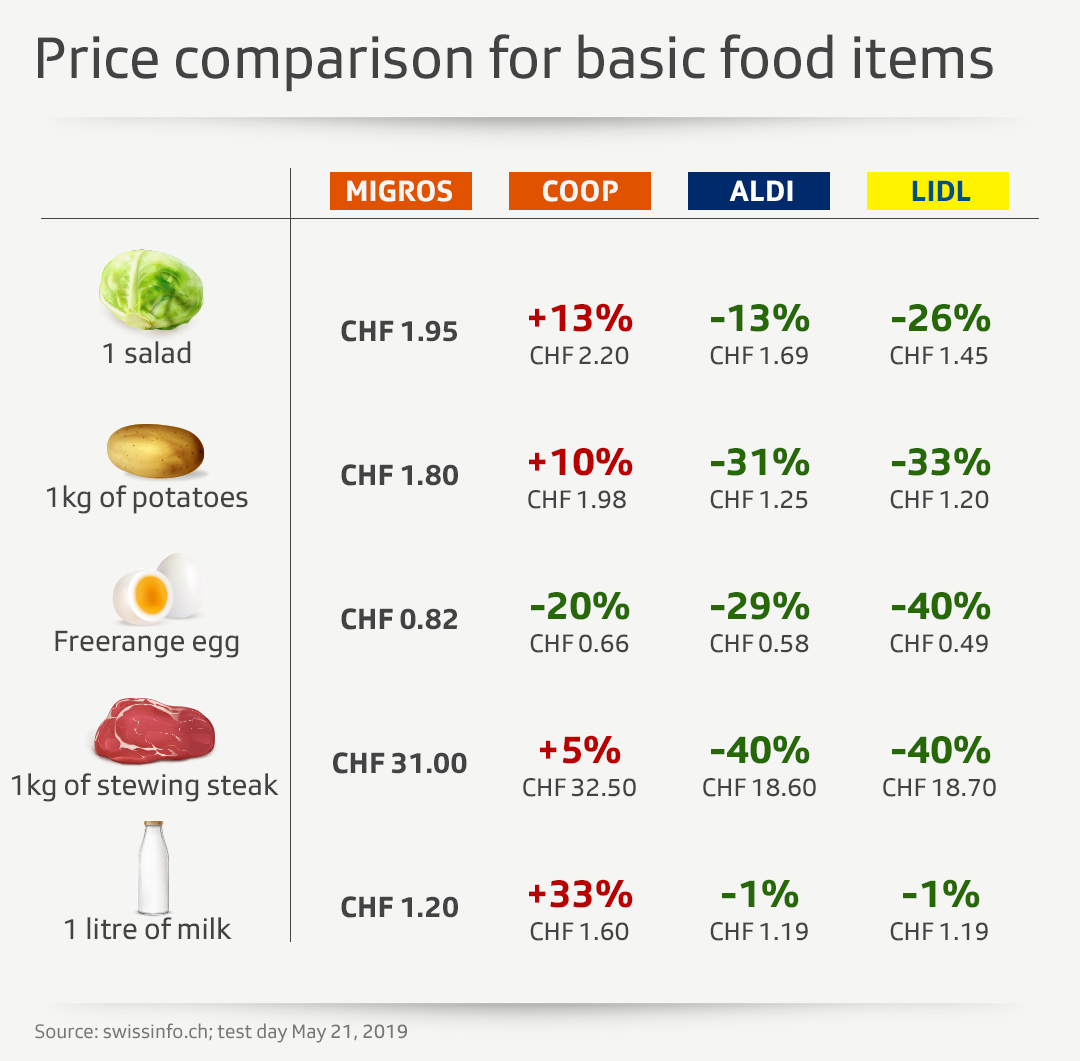
I went on one regular and one frugal weekly shopping trip.
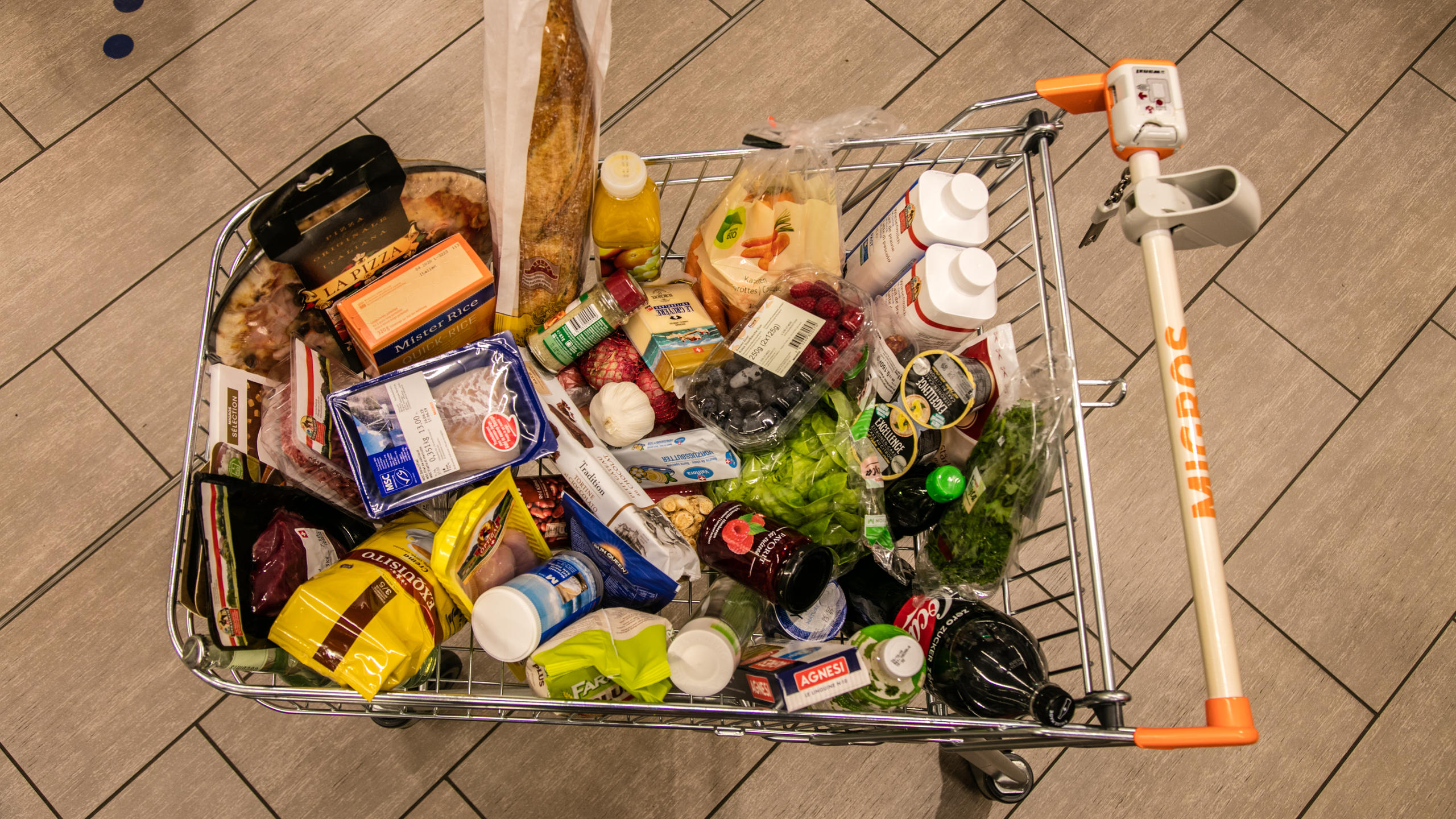
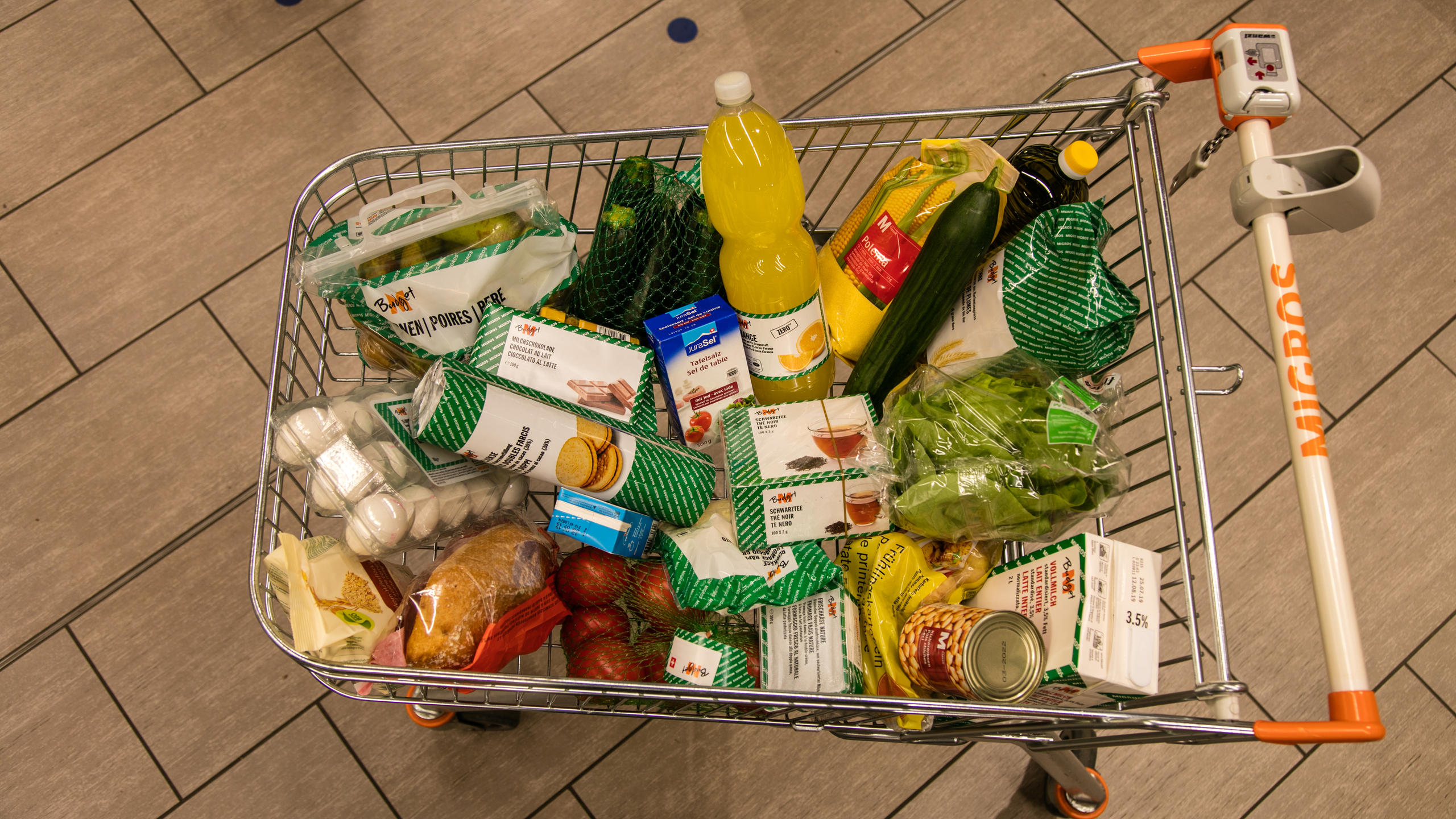
Shopping frugally requires a certain amount of discipline, but your shopping trip is a lot quicker and easier. Owing to the lack of choice, you don’t have to think long and hard. And choosing from 47 different kinds of yogurts can be overwhelming anyway.
Transport
Here, it gets a bit tricky. My monthly travel pass enabling me to commute to work costs CHF159. On top of that, I have to pay for a half-fare travel pass that gets me half off each journey, as well as for trips to see friends, parents, my sister and other relatives who live all over Switzerland.
With a half-fare pass, the return journey from my home in canton Bern to my parents’ house in Zurich costs CHF59.
During the test month, I buy single “supersaver tickets”External link using the Swiss Rail app for between CHF7 and CHF28. Saver fares must be purchased well in advance and are only available off-peak and at certain times. I have to tell my parents that I will visit them on Sunday in four weeks’ time at exactly 11:30am. Luckily, that works for them.
Healthcare
For several weeks I suffered from toothache which I thought might be a cavity. But I postponed my dental appointment until after the test month, since a filling can cost several hundred Swiss francs and dental work is generally not covered under basic health insurance.
Even though my health insurance scheme is with one of the cheapest insurers and I pay the highest deductible, I still have to pay CHF250 a month in premiums. I also have to pay the first CHF2,500 in costs out of my own pocket each year. Fortunately, I didn’t fall sick during the test period.
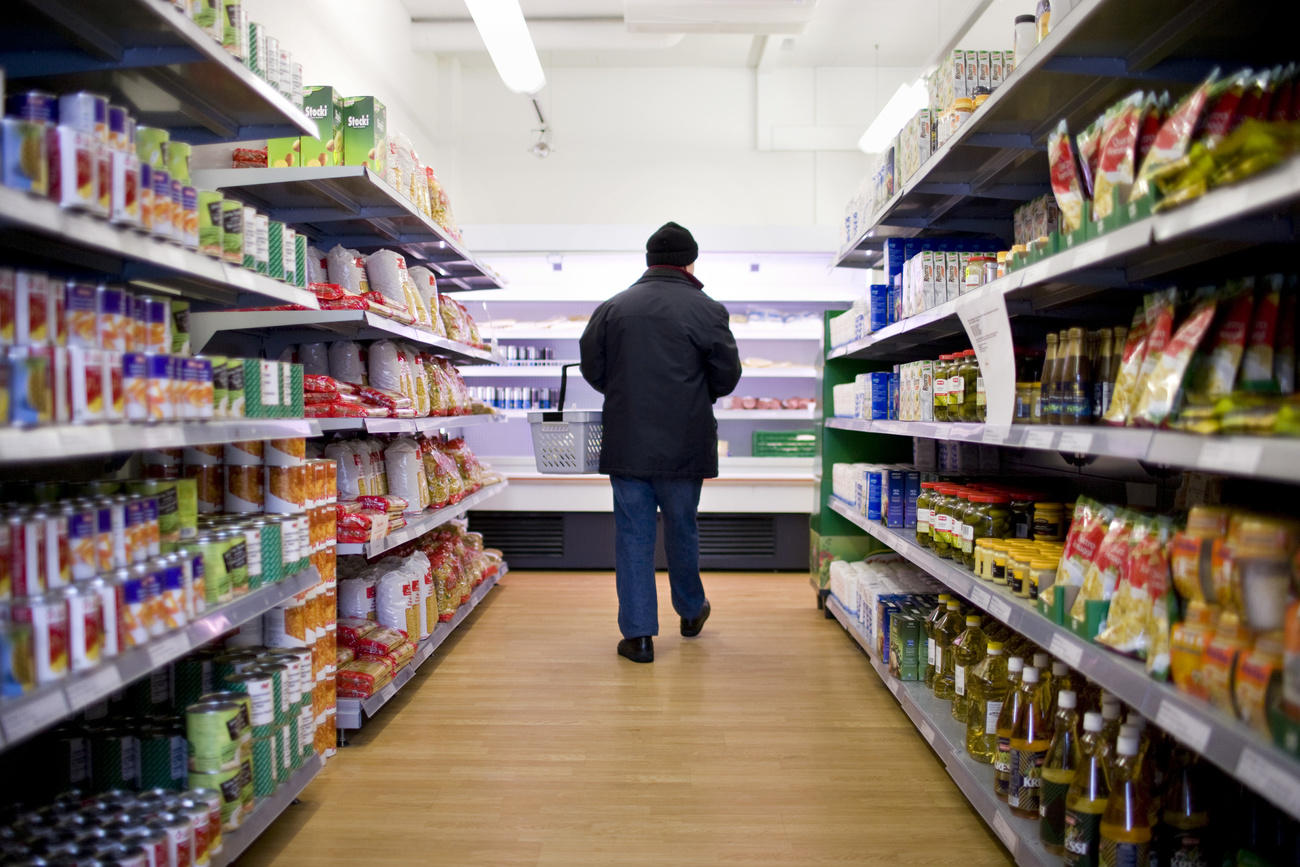
More
Why living on the breadline is especially hard in Switzerland
Clothes and furniture
I ordered second-hand clothes online. This was significantly cheaper than buying new clothes. The problem was that it was hard to find clothes that fit without trying them on. I couldn’t afford to waste any money and quickly gave up.
I usually buy most of my furniture second-hand on the internet, which has always worked well. But at the local second-hand shop I only find rubbish – bric-a-brac in all shapes and sizes, embroidered blankets and ancient radios. Nothing you really need.
Being poor in Switzerland is stressful
After two weeks I threw in the towel. After a busy week at work, I was driving my young daughter to a birthday party through central Switzerland at the weekend when I realised that I couldn’t handle all the additional organisation. Living on social welfare benefits had stressed me out. Spending money in the most cost-effective way and looking for the cheapest deals requires knowledge and time.
It made me realise why being poor can feel so lonely. Most Swiss people enjoy a high standard of living. Most social activities involve money. You meet in cafés, restaurants or at events. If you don’t have money, you are out of the loop. My friends and family immediately noticed that I had changed my lifestyle. I felt impolite for not joining them in a restaurant or for being inflexible due to the saver rail fares.
Living in the land of plenty without money is difficult for all the constant temptations. Nibbling on a dry piece of bread for lunch, while watching my neighbour eat a burger with fries required a lot of willpower.
However, I also learned something useful during the experiment. Even though I was unable to buy organic food or ecological cleaning products, my lifestyle was much more environmentally friendly than that of the average Swiss: no plane tickets, not much need for other transport, no big purchases apart from essential clothes, no food waste. etc. As dull as this may sound, I feel it would be better if we Swiss were a bit poorer and worked less so we could lead a more modest life.
Translated from German by Billi Bierling

In compliance with the JTI standards
More: SWI swissinfo.ch certified by the Journalism Trust Initiative

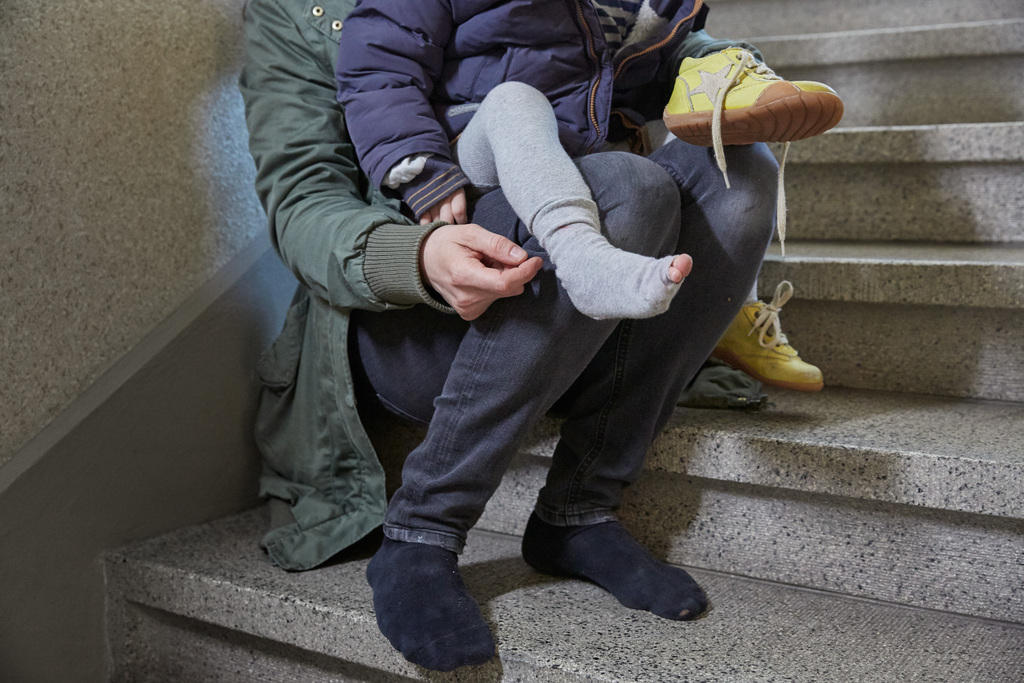


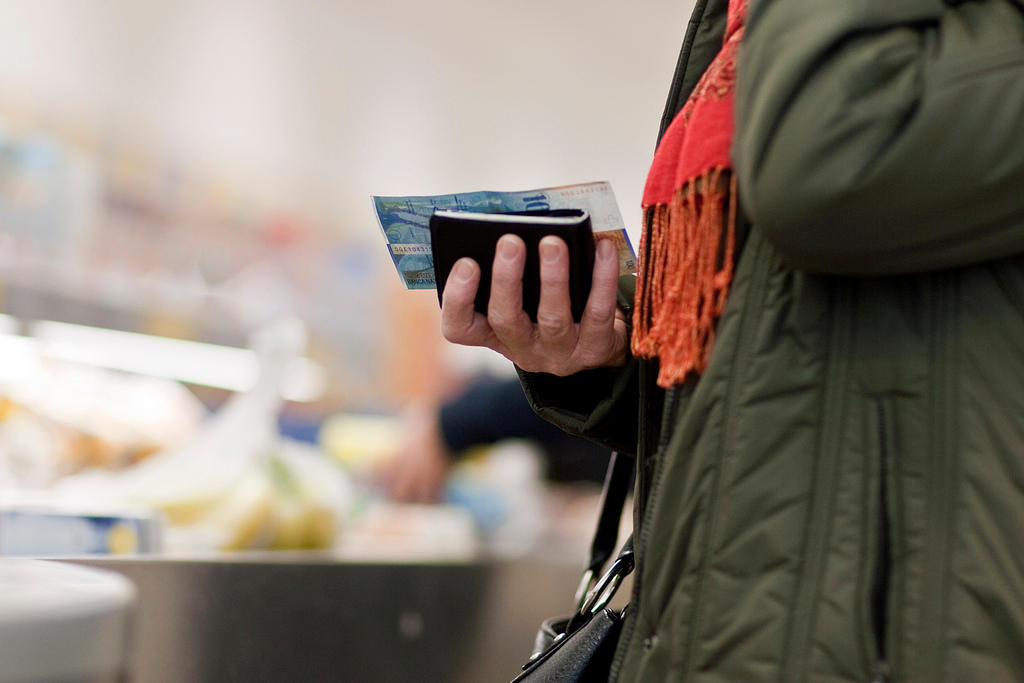

You can find an overview of ongoing debates with our journalists here. Please join us!
If you want to start a conversation about a topic raised in this article or want to report factual errors, email us at english@swissinfo.ch.